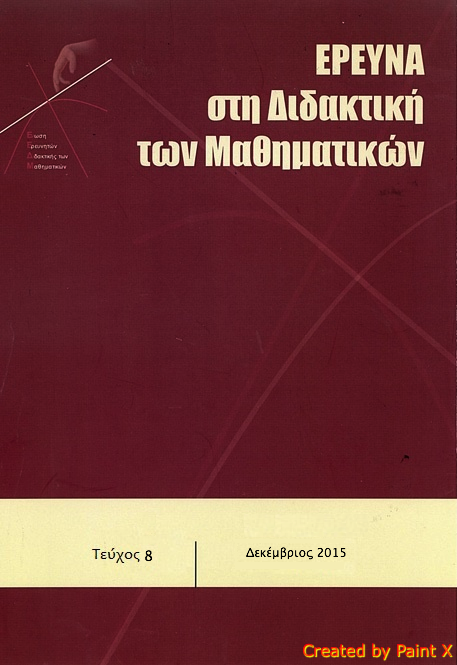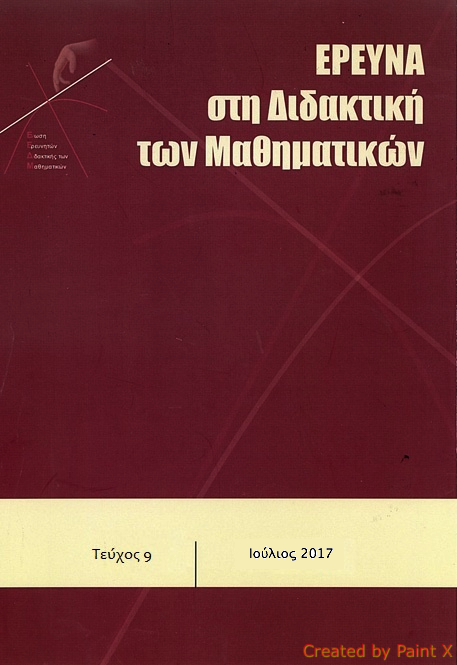Η ΑΝΑΠΤΥΞΗ ΤΗΣ ΑΤΥΠΗΣ ΣΤΑΤΙΣΤΙΚΗΣ ΣΚΕΨΗΣ ΣΕ ΜΑΘΗΤΕΣ ΜΙΚΡΗΣ ΗΛΙΚΙΑΣ
Аннотация
Το άρθρο εστιάζεται στην ανάπτυξη της άτυπης επαγωγικής συλλογιστικής (informal inferential reasoning) με τη χρήση του δυναμικού λογισμικού TinkerPlots®, το οποίο σχεδιάστηκε ειδικά για παιδιά δημοτικού και γυμνασίου. Τα αποτελέσματα της έρευνας δείχνουν ότι η διδακτική της στατιστικής μπορεί να προάγει την ανάπτυξη της επαγωγικής σκέψης σε παιδιά μικρής ηλικίας, μέσα από άτυπες, βασισμένες σε δεδομένα προσεγγίσεις. Επίσης, υποδεικνύουν ότι η χρήση του δυναμικού λογισμικού στατιστικής έχει τη δυνατότητα να ενισχύσει τη διδακτική της στατιστικής μέσω του επαγωγικού στατιστικού συλλογισμού, ο οποίος είναι προσιτός στους νεαρούς μαθητές.
Article Details
- Как цитировать
-
Παπαριστοδήμου (Efi Paparistodimou) Έ., & Μελετίου - Μαυροθέρη Μ. (2017). Η ΑΝΑΠΤΥΞΗ ΤΗΣ ΑΤΥΠΗΣ ΣΤΑΤΙΣΤΙΚΗΣ ΣΚΕΨΗΣ ΣΕ ΜΑΘΗΤΕΣ ΜΙΚΡΗΣ ΗΛΙΚΙΑΣ. Έρευνα στη Διδακτική των Μαθηματικών, (8), 87–106. https://doi.org/10.12681/enedim.14241
- Раздел
- Άρθρα

Это произведение доступно по лицензии Creative Commons «Attribution» («Атрибуция») 4.0 Всемирная.
Οι συγγραφείς των άρθρων που δημοσιεύονται στο περιοδικό διατηρούν τα δικαιώματα πνευματικής ιδιοκτησίας επί των άρθρων τους, δίνοντας στο περιοδικό το δικαίωμα της πρώτης δημοσίευσης. Άρθρα που δημοσιεύονται στο περιοδικό διατίθενται με άδεια Creative Commons BY και σύμφωνα με την άδεια μπορούν να χρησιμοποιούνται ελεύθερα, με αναφορά στο/στη συγγραφέα και στην πρώτη δημοσίευση.



